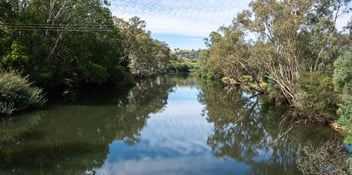States reach agreement on Murray-Darling Basin Plan delivery
Australia’s state and federal water ministers have agreed on how environmental water will be returned to the Murray-Darling Basin after six years of debate.
The Federal Government announced a plan to recover 450GL of water for the environment in 2012, on top of the Murray-Darling Basin Plan’s (MDBP) target of 2750GL.
But it has taken until now for the Basin states (Victoria, New South Wales, South Australia and the ACT) and the Commonwealth to agree on the terms.
At a meeting in Melbourne last week, the ministers agreed on a set of rules for returning water to the environment without leaving regional communities worse off.
A set of socio-economic criteria will be applied to all efficiency measures projects that are part of the 450GL recovery effort. The same test will apply across all states, and will take water prices and any impact on jobs into consideration.
Federal Water Minister David Littleproud described it as a “historical agreement” that will allow the Basin Plan to be delivered. He said the neutrality test would give certainty to the 2 million Australians who live in the Basin.
“[The] agreement on a neutrality test guarantees all water recovered towards the 450GL will create positive or neutral socio-economic outcomes,” Littleproud said.
“This is the last major piece in the MDBP puzzle. This will protect both jobs and production and will be applied at a local, regional and state level.”
The water ministers also agreed to appoint a dedicated Aboriginal member to the Murray-Darling Basin Authority (MDBA).
Basin Plan report card
The neutrality test agreement followed the release of the MDBA’s end-of-year report card, which assessed six areas that are important for successful implementation of the MDBP.
These are: water resource plans; compliance; Northern Basin initiatives; environmental water delivery; water recovery; and sustainable diversion limit.
MDBA Chief Executive Phillip Glyde said some of these areas are on track, but others involve significant challenges.
He said there is a high risk that the June 2019 water recovery target of 62GL won’t be met, and that water resource plans, which are developed by state governments, are at risk of delay.
Victoria, Queensland, SA and the ACT are on track to deliver their plans, while NSW, which has 20 plans to prepare, is behind schedule.
"However, it is positive to see that gap-bridging water recovery is firmly on track, and there has been significant progress on work to strengthen compliance, and in the effective planning and delivery of water for the environment,” Glyde said.
He said it is vital all parties work together in order for the Plan to succeed.
“The Basin Plan is one of the most complex and ambitious water reforms in the world. It arose from an urgent need to secure the future of our nation’s most important river system, and was forged in the spirit of cooperation and bipartisanship,” Glyde said.
"It is only by working together to implement the Basin Plan as intended that we can realise its full benefits — a healthy, working, sustainable river system now and for future generations.”
Read the full MDBA report card here.

